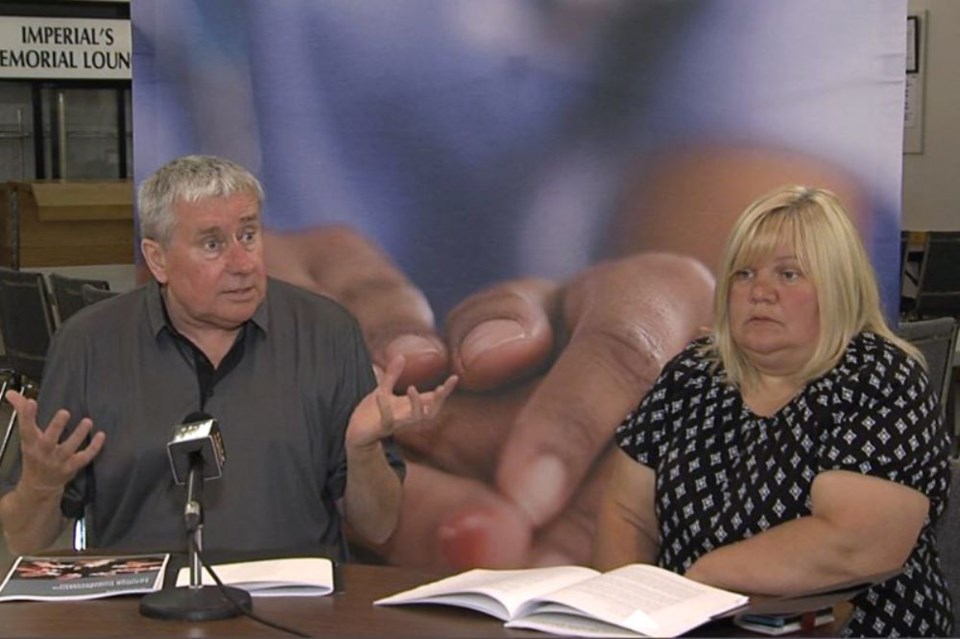Are cuts to Ontario's health care system unfairly targeting seniors?
An organization representing health care workers wants to make age discrimination in health care a matter of human rights.
The Ontario Council of Hospital Unions of CUPE leadership was in Thunder Bay over the weekend, collecting stories they say will inform the case they intend to file with the Ontario Human Rights Commission.
The council alleges the five-year freeze to Ontario's hospital budgets has resulted in seniors with complex care needs being prematurely released from hospital.
Its report, "Pushed Out of Northern Hospitals, Abandoned At Home," is a series of personal stories about health care from patients who accessed the council's hotline. From an 86-year-old woman whose doctor allegedly told her she'd "had a good life" when he sent her home to die to an elderly man who died of depression after being ejected from primary care before he could walk again, the document paints two decades of cuts to Ontario's health care system as a systemic failure to serve society's elders.
Council president Michael Hurley believes the fears of the so-called "Silver Tsunami," where health care costs for Baby Boomers could swallow Ontario's economy are ill-founded.
"When the Baby Boom generation was born, we built schools, which we're now closing. We met the increased demographic demand and we provided education and took care of them," Hurley pointed out.
"Society's capable -- like during the Second World War -- of enormous efforts and we can do a lot in this societry when we put our minds to it. We can provide care to the Baby Boomers and the result of providing that care will not bankrupt Ontario or Canada and it will not burden us forever because when that demographic goes through, we can reduce capacity."
Instead of responding to that predictable need, he believes, there has been a targeted campaign to impose a vision on the public that seniors are using an unfair share of health care resources.
"The characterization of this age group -- the elderly-- as people who are hogging health care resources and causing gridlock is part of a way to explain to the public how it is that they're having difficulty accessing the health system," he said.
The council argues health care in Northern Ontario has been particularly hard-hit, where smaller communities are losing hospital departments altogether, patients are being pushed into urban centres and larger hospitals like Thunder Bay are still cutting services. The region's poor health indicators across the board are thought to be exacerbating that pressure.
In response, Ontario has announced the Aging At Home strategy, based on its assertion that 80 per cent of people would prefer to receive care at home than in hospital. Hurley called it the "Aging Alone" strategy, saying care is being pushed on family members.
"If it was a case where we're closing acute beds but we're picking up with 24-hour nursing care at home, that would be viable but we're not giving that to people at all," he said.
"It's an explanation that makes people accept change but it's not an honest explanation because the reality for most familiies is, they're going to cope with Mom and Dad and they're going to have to do things like run IVs and give meds and change complex wound dressings and do all sorts of stuff at home for which they've had no training and for which they'll get almost no support. Only the most severe cases are going to get dignified with the care the government suggests will be avilable to everyone. And that's wrong."
Sharon Richer is the council's vice president for Northern Ontario. She says telemedicine technology can be embraced but the way it's being used now is primarily to reduce needed resources in home care.
"If you're at home, you need some kind of medical care that is not complex that could see a family doctor about, we have no problem with even dialing in and speaking to a nurse but unfortunately, these people at home have complex medical issues," she said.
"We understand that there are pressures, there are needs for electronic devices in medical care but for many of these elderly people and seniors, this should not be used in specific cases."
